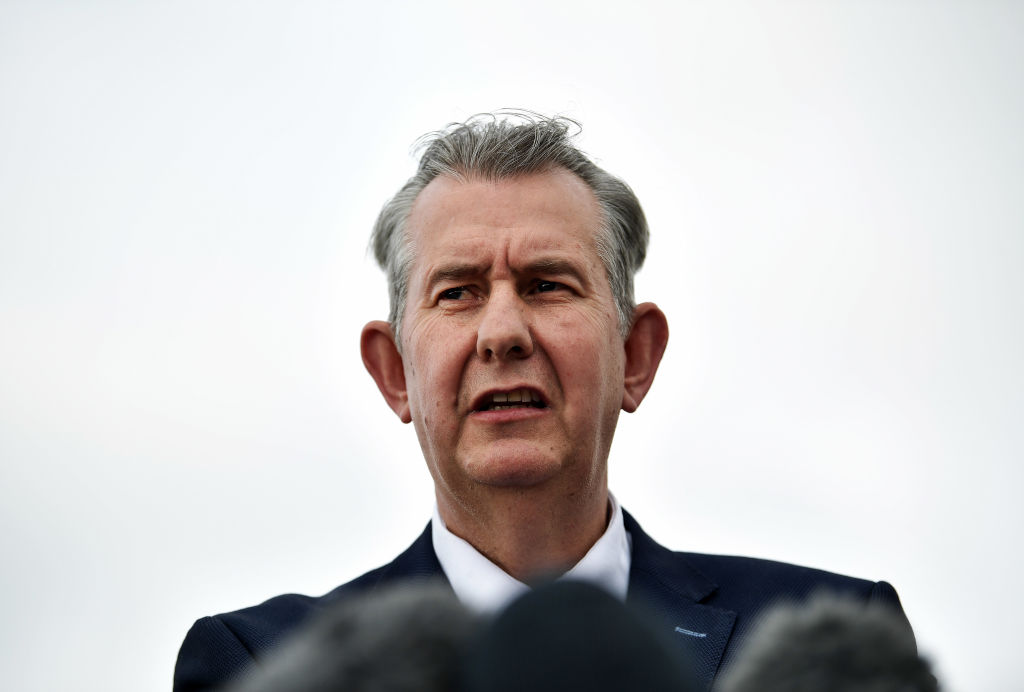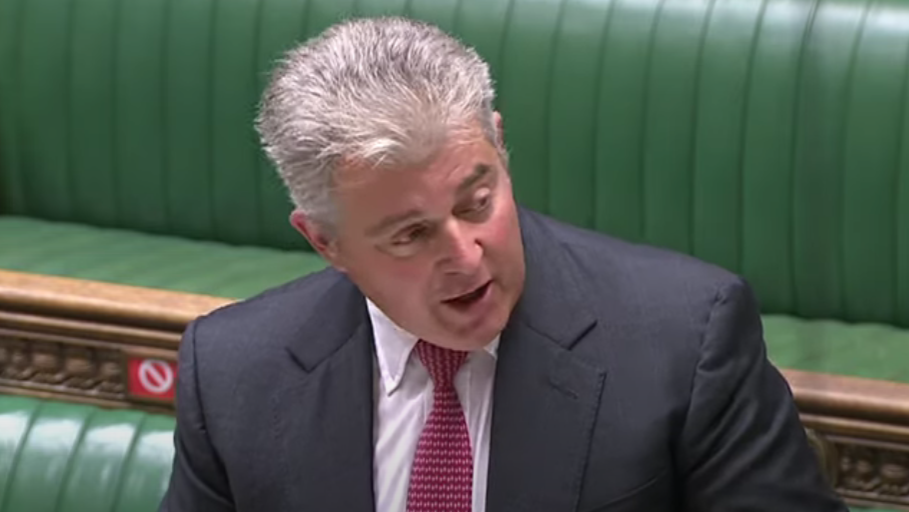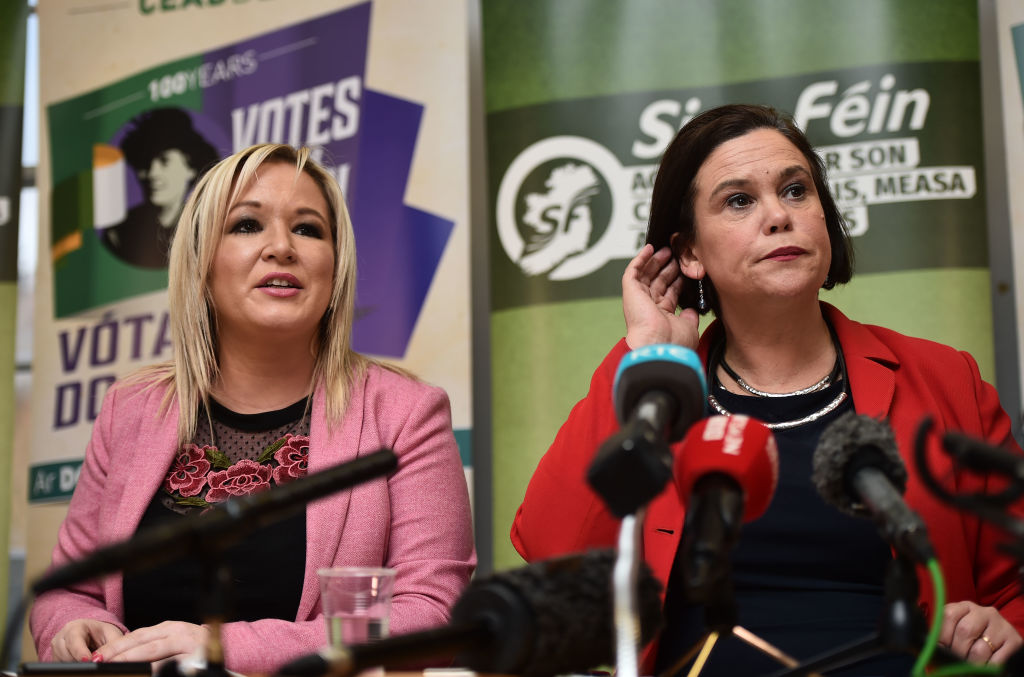THE IRISH language and Ulster-Scots will be granted official status in Northern Ireland after a political deadlock was solved yesterday evening.
English is the most-spoken language in the north, although parts use Irish or Ulster-Scots, and a previously proposed Irish Language Act would have given the Irish language equal status to English in Northern Ireland.
The Act was supported by Sinn Féin, Alliance, SDLP and the Green Party but opposed by the Ulster Unionist Party and the Democratic Unionist Party, and in 2020 a compromise was reached which would see both Irish and Ulster-Scots granted official status, as well as a range of new amendments to the Northern Ireland Act of 1998, rather than see a new official Irish Language Act introduced.
Former DUP leader and First Minister Arlene Foster had committed to implementing the Act before the end of this year, but Ms Foster has been ousted from her position, replaced by Edwin Poots as DUP Leader and expected to be replaced as First Minister by Paul Givan next week.
 Northern Ireland's agriculture minister Edwin Poots has been elected leader of the Democratic Unionist Party in Northern Ireland, following the resignation of Arlene Foster in April. (Photo by Charles McQuillan/Getty Images)
Northern Ireland's agriculture minister Edwin Poots has been elected leader of the Democratic Unionist Party in Northern Ireland, following the resignation of Arlene Foster in April. (Photo by Charles McQuillan/Getty Images)Sinn Féin had asked Mr Poots to reaffirm commitment for the introduction of the Act before the summer break of this year, but Mr Poots refused to be tied to a deadline, and Sinn Féin subsequently refused to re-nominate Michelle O'Neill as Deputy First Minister, leading to a political deadlock which could have collapsed the Northern Ireland Executive if a solution had not be found by Monday, 21 June at 1pm.
Sinn Féin had even appealed to Westminster for intervention to push through the legislation which would see both Irish and Ulster-Scots be recognised as official languages in Northern Ireland-- an unprecedented move for the Republican party.
The DUP warned Westminster to stay out of the issue, with East Antrim MP Sammy Wilson saying the British government "must not interfere in devolved issues at the behest of Sinn Féin" as "such actions only served to undermine devolution," RTÉ News reported yesterday.
However, Northern Ireland Secretary Brandon Lewis yesterday evening confirmed that the British Government would push through an Irish language act in October of this year if the Stormont Assembly has failed to do so before then.
While it would be everyone's first choice for the Assembly to legislate for the act on its own, the British Government was willing to act to protect the stability of the Northern Ireland government, Mr Lewis said, and Sinn Féin have since confirmed that they would re-nominate Michelle O'Neill for Deputy First Minister, ending the political deadlock.
 Northern Ireland Secretary Brandon Lewis
Northern Ireland Secretary Brandon LewisDUP Leader Edwin Poots told members in a letter that the DUP "have never been in the business of playing fast and loose with devolution" and it was "unnecessary" for Sinn Féin to "set ultimatums and deadlines".
"The DUP is not in the business of pre-conditions. Our mandate must be respected.
"It is regretful there was ever such instability created by Sinn Féin," he added, RTÉ News reports.
Meanwhile, Sinn Féin leader Mary Lou McDonald released a short statement where she said the British Government "has tonight agreed to legislate for Acht Gaeilge and the cultural package at Westminster. This will happen in October with Commissioners appointed by March 2022.
“We told the British government that this is the only viable option to deliver these rights as the DUP were unwilling and incapable of delivering on their commitments. It is deeply regrettable that the DUP chose to block rights in this way for so long," the party leader continued.
“Tonight we have broken through all of that.
 (L-R) Michelle O'Neill and Mary Lou McDonald of Sinn Féin (Photo by Charles McQuillan/Getty Images)
(L-R) Michelle O'Neill and Mary Lou McDonald of Sinn Féin (Photo by Charles McQuillan/Getty Images)“Irish speakers have been waiting for fifteen years for basic rights and recognition to be delivered. This is important for Irish language speakers and for wider society because power sharing is based on inclusion, respect and equality.
“There is an important responsibility on the Irish and British government to ensure no further delay.
“On this basis of what has been agreed I am happy to confirm that Sinn Féin will nominate Michelle O’Neill as Deputy First Minister and will participate fully in the five party executive.
“We have a huge amount of work ahead of us as we come out of Covid and as we continue to rebuild the economy, get people back to work and tackle hospital waiting lists.”

